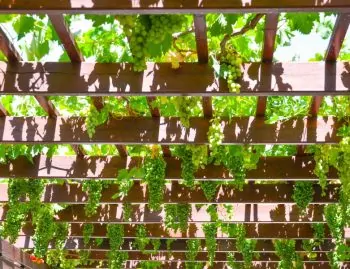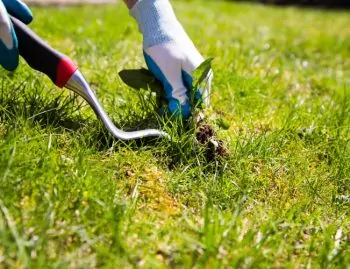Whether you use your garden to grow flowers and vegetables or you have a lawn, it is crucial to know the exact pH and nutrient composition of the soil on your property. This information not only helps with healthy crop production, but it is also useful in identifying the right plants for your area. For these reasons, it is advisable to conduct soil testing before investing in plants and landscaping services.
Soil testing is a procedure that seeks to establish the level of the acidity or alkalinity of your soil (pH), as well as the type and concentration of nutrients in it. That said, it is not a simple process. It involves several specific procedures and elements to ensure that it is thorough and exhaustive.
Soil Testing Quote
The Soil Testing Process
Some of the places where you can get your soil tested include specialized landscaping companies, private labs, local agricultural extension offices, garden centers, etc. Before anything, you must take a soil sample.
How To Test The Soil Yourself
You will need a tool, such as a shovel or a soil probe, when collecting samples from your soil. The sample should be from between five to seven inches into the ground, and more importantly, free of grass, stones, and other debris. Also, you should pick several samples from different areas of your lawn or garden to get more accurate results. Since most labs prefer dealing with dry soil, you have to expose the samples to the sun for at least 24 hours.
Once you have a dry sample, you can send it to your preferred testing center or use your own tests.
The three most popular methods of testing soil are the 1:2 dilution method, leachate Pour Thru, and saturated media extract. To avoid an incorrect interpretation of results, it would be best if you used interpretative data for the specific soil testing method.
Methods used in Soil testing
1:2 Dilution Method
The 1:2 dilution method is renowned for providing reliable interpretative data. In this method, a soil sample gets mixed with water in a one to two ratio, hence the name. The liquid extract is then separated from the solids using a filter paper and taken for analysis. Because of its simplicity, this method is ideal for on-site testing. It is used for analyzing soil pH and the concentration of soluble salts.
Leachate Pour Thru Method
The Pour Thru method allows farmers to collect leachate from plants grown in containers. Its most significant advantage is that it does not need media sampling or preparation. Unlike other methods, you do not have to interfere with plants when collecting samples since you can take the leachate while irrigating.
The collected leachate can then get analyzed on-site or be sent to a lab for more comprehensive nutrient analysis. The Pour Thru method is the best way of continuously monitoring the pH and nutrient levels in your farm. Hover, you need to be careful when collecting the soil samples.
Saturated Media Extract
The saturated media extract method is mostly used to test soilless greenhouse media. It involves the making of a paste consisting of soil and water. The liquid extract from the pat is then taken for analysis to determine the pH, as well as the concentration of various nutrients and soluble salts.
This method requires specialized equipment and trained personnel to conduct. It is not ideal to use unless you have a greenhouse that is big enough to accommodate a lab. They should also be able to employ a technician and fund regular tests.
Importance of Soil Testing
The health of the crops you grow (or grasses) is heavily dependent on the condition of the soil on your property. This is the most important benefit of soil testing, as it shows you the minerals and nutrients available on your land.
The following are some of the benefits of testing the soil on your property.
It Informs You of the Condition of Your Soil
The best way of establishing the fertility of the soil is by assessing its biological, chemical, and physical properties. Some of these characteristics, such as color, structure, and texture, do not require testing. However, it is impossible to know the chemical composition of a soil sample without testing.
By conducting thorough soil testing, homeowners and property managers can know the pH and nutrient levels in their soil. The significance of this information is that it helps in knowing what is needed to improve the productivity of your soil and reduce maintenance costs.
It Reduces Money Spent on Fertilizers
When you know what your soil lacks, you are unlikely to spend on products that will have zero impact on your soil. This is because you will know the amount and type of fertilizers needed to enhance the productivity of your soil. As a result, you avoid wasting money on unnecessary fertilizers, which can sometimes be very expensive.
It Prevents Excessive Application of Fertilizers
Although nutrients are beneficial to plant growth, the excessive application can have adverse effects on them. Also, too many fertilizers can have negative impacts on the environment, such as water pollution and nutrient leaching.
The only way to prevent the effects of excessive application of fertilizers is by conducting soil testing. This way, you will get recommendations from experts on how much and the type of nutrients that are ideal for your soil.
It Prevents Soil Degradation
Every year, the world loses a substantial amount of fertile soil because of soil erosion. One of the leading causes of erosion is unbalanced soil management. The resultant effect of erosion is land degradation, which further causes food insecurity and other harmful effects.
Even worse, soil restoration is an expensive, cumbersome, and time-consuming process. Therefore, it is better to adopt preventive measures such as soil testing because they are much cheaper.
It Improves Food Security
The current population puts more pressure on the soil more than ever before. As the number of people increases globally, there is a need for fertile soils to feed the world and combat food insecurity. Since soil testing is critical for ensuring that farms, or even small urban gardens, are productive, it plays a significant role in ensuring that the world has food security and self-sufficiency.
On a smaller level, it helps you insure that your investment in landscaping, lawn care and other gardening tasks is kept low, without too much waste.
Conclusion
The importance of soil testing has been in existence for many years. This practice helps you know the condition of your soil, which in turn improves the productivity of your soil. For instance, knowing the pH of your soil can be useful in determining the availability and solubility of nutrients in your soil. It also allows you to learn other qualities such as texture, moisture content, and soil chemistry.
To have your soil tested professionally in the Chicago area, give us a call for a free quote. R & G Almanza Landscape offers a full range of services, from patio paving and soil testing to mulching and gardening.








You must be logged in to post a comment.